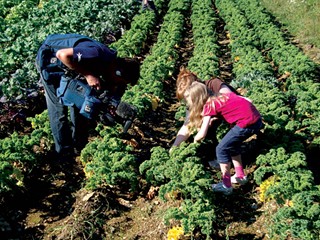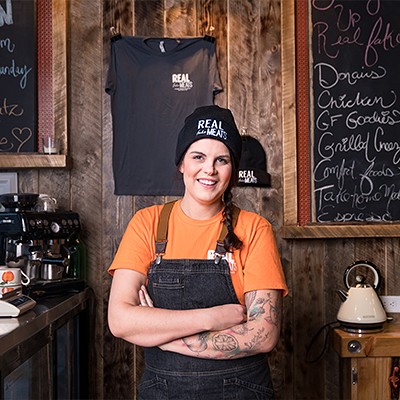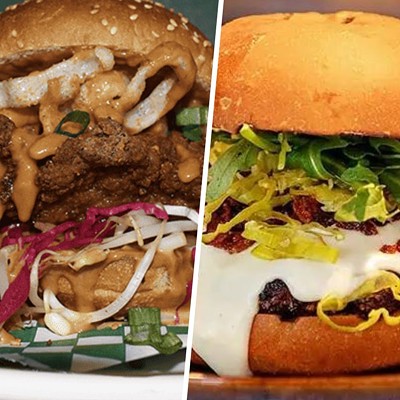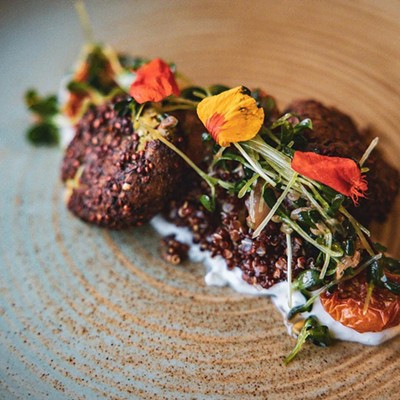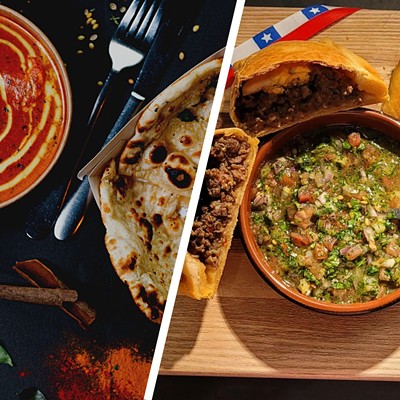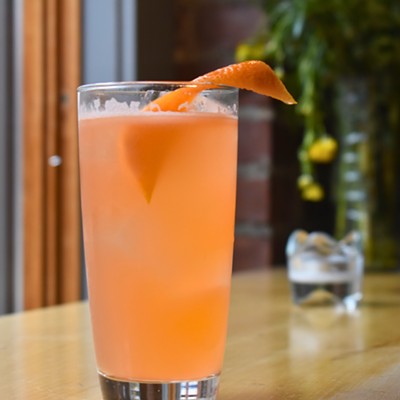The McMillins may seem like an ordinary family, but they're not. They've cut their food miles by nearly 70 percent and have done so without depriving themselves of any of life's pleasures, like the hot chocolates they're sipping in a downtown cafe.
The family reduced their average food miles from 2,569 km/month to 880 km/month, releasing around 60 percent less carbon dioxide. They speak excitedly about tossing their Sobeys bacon for leaner, thicker and juicier bacon from Roselane Farm in Tatamagouche, giving up Mike's Hard Lemonade for Domaine de Grand Pre's hard cider, and swapping their frozen pizzas for frozen meat pies from Heppy's in Herring Cove.
"I find we're buying less, wasting less and eating better quality food," says James McMillin happily.
In Edward Peill's new documentary for Land and Sea (cbc.ca/landandsea), Turning a Green Leaf, the writer-director challenges the McMillins to find a local source for as many of the food items they eat as possible. They don't fully embrace the popular 100-mile diet, though---they're allowed to continue eating imported items they can't find locally. Though pushers of the 100-mile diet have good intentions, says Peill, the diet is "not realistic on a long-term basis for most Canadians because it asks them to deprive themselves of items we can't grow here in Canada."
"We took a different approach with the film, by encouraging the participants to discover and enjoy local food and beverages, rather than make them feel guilty about having their morning coffee or a piece of chocolate," he explains.
Reliance on imported foods is frequently unnecessary and sends our CO2 emissions through the roof. Take apples: When you buy an apple imported from Washington state, that apple has released 25 times more carbon emissions in getting here than an Annapolis Valley apple. "We produce enough apples in Nova Scotia to meet our needs and then some, yet we still import apples from other places, even in the fall when our apples are at their peak," laments Marla MacLeod of the Ecology Action Centre. "This is an example of redundant trade."
In the documentary, MacLeod calculates the McMillins' CO2 emissions by taking the food weight, the distance their food travelled and the mileage of transport vehicles into account. She finds food that travels by rail releases over 10 times less CO2 than food that travels by truck or boat, and 100 times less than food that travels via domestic air.
It was difficult for the McMillins to track down where all of the ingredients in processed foods came from. MacLeod shares their frustration---she's part of a volunteer group working on a food miles study.
"When I contacted Kraft, they said, 'No, we can't tell you where the milk is coming from,'" says MacLeod. "They said, 'That is proprietary information.'" She ran into the same problem when she tried to find out where ground beef at Sobeys and Superstore came from---she was told it was from "out west somewhere."
Despite the buy-local craze, we produce less food locally in Nova Scotia than we did in the 1970s and '80s.
"The pork industry has basically disappeared in Nova Scotia," and the beef industry is on the brink of disappearing, says MacLeod. Nova Scotians have gone from being 80 percent self-reliant on pork to around 15 percent in a decade. Ninety percent of Nova Scotia's ground beef is imported.
MacLeod hopes we can restore our rural communities to what they once were, but fears we may already be "too far gone." "We're losing our farms," she says. "Farm income is declining and farm debt is increasing."

